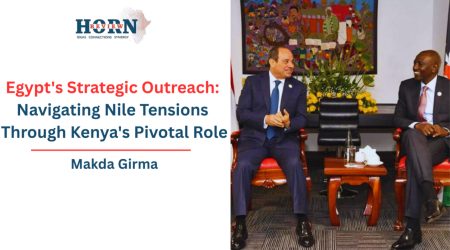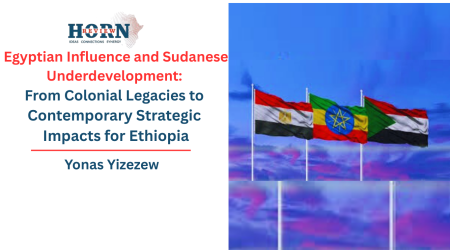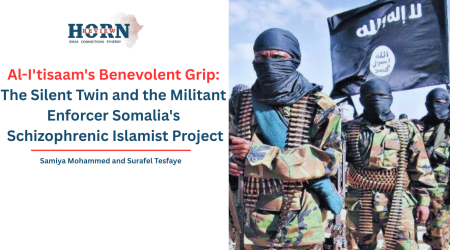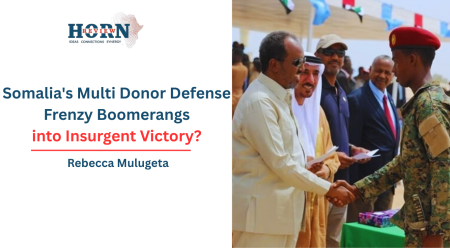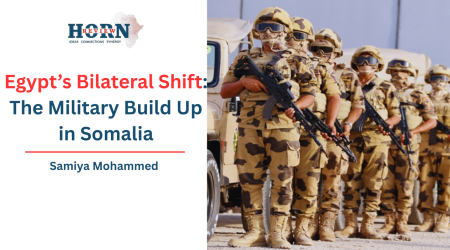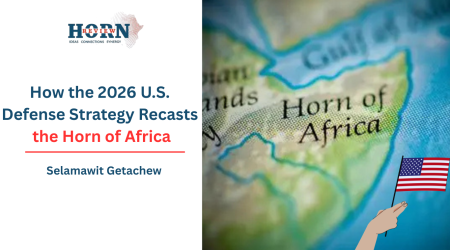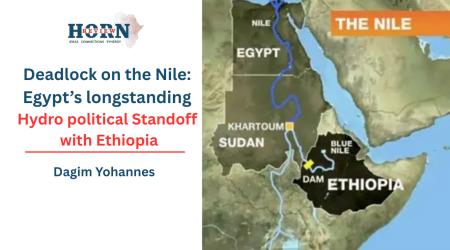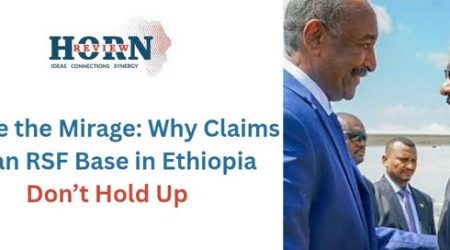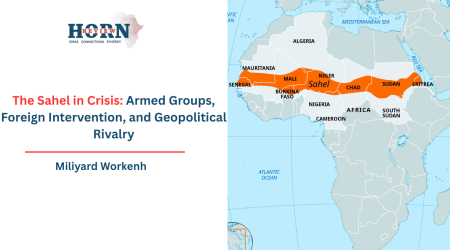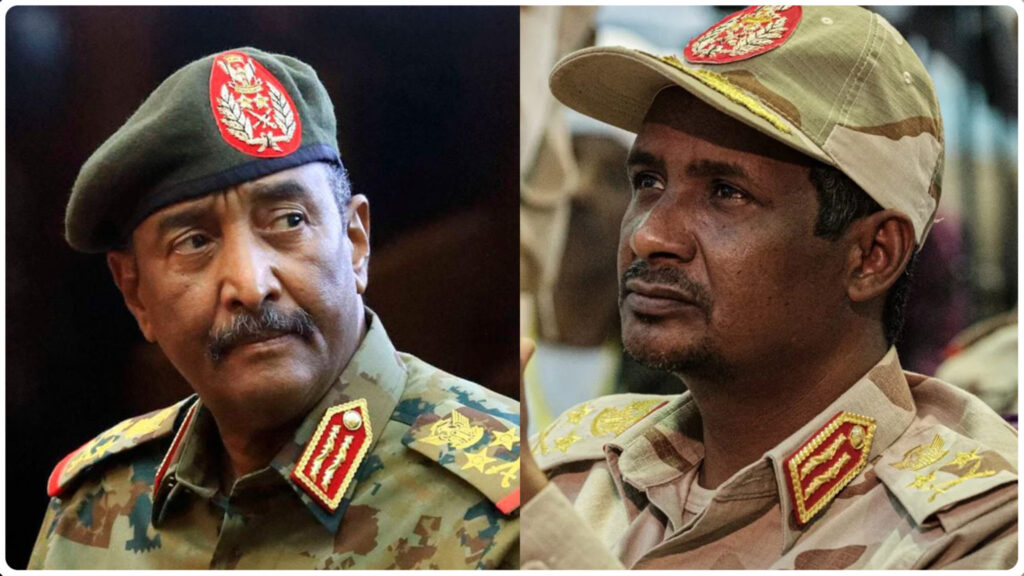
2
Jul
Regional Reverberations: Addressing the Sudan Conflict and its Implications for Peace and Security in the Horn of Africa
The civil war in Sudan, which reignited in April 2023 between the Sudanese Armed Forces (SAF) and the Rapid Support Forces (RSF), has triggered one of the world’s worst displacement and humanitarian crises. The conflict has killed thousands and displaced more than 10 million people internally and across borders, severely affecting neighboring countries such as Ethiopia, South Sudan, Chad and Egypt (UNHCR, 2024). As the war prolongs without a durable ceasefire, it threatens to unravel regional peace and security by fueling arms trafficking, cross-border violence and extremism particularly in ungoverned or fragile border regions.
Efforts to mediate the crisis, including initiatives by the African Union (AU), Intergovernmental Authority on Development (IGAD) and other stakeholders have been slow and largely ineffective due to competing interests and lack of enforcement mechanisms (ICG, 2024). The protracted nature of the conflict poses a real risk of regional spillover, especially in the already volatile Horn of Africa. The instability in Sudan has disrupted trade corridors, strained humanitarian resources and exposed vulnerabilities in regional governance structures.
This policy brief underscores the urgency of coordinated regional action, including stronger diplomatic engagement, protection of humanitarian routes and support for inclusive peacebuilding efforts. Addressing the Sudan crisis is not only a humanitarian imperative, it is critical to preserving regional stability and advancing Africa’s peace and security structure.
Context and Challenge
The protracted conflict in Sudan between the Sudanese Armed Forces (SAF) and the Rapid Support Forces (RSF) has evolved from a national crisis into a pressing regional challenge. The continuous fighting since April 2023 has not only devastated Sudan’s internal stability but has also sent shockwaves across the Horn of Africa. Millions have been displaced, borders have been militarized and humanitarian corridors disrupted. Neighboring countries are increasingly vulnerable to the spillover effects ranging from refugee inflows and resource strain to rising insecurity and illicit arms flow. Despite regional and international mediation efforts, the lack of a coordinated and enforceable political settlement has allowed the conflict to persist, deepening its impact on regional peace, trade, and governance. Urgent action is needed to address the root causes and mitigate the broader implications before the crisis undermines the fragile stability of the region.
Key Issues
- Humanitarian Catastrophe: Over 10 million internally displaced persons and refugees, widespread famine risk and collapsed health and education services across Sudan.
- Regional Destabilization: Influx of refugees and cross-border militancy affect Ethiopia, South Sudan, Chad and Egypt. Tensions are rising along sensitive borders and trade corridors.
- Security Vacuum: The breakdown of governance has opened space for extremist networks, criminal groups and local warlords to gain control in ungoverned regions.
- Diplomatic Deadlock: Mediation efforts by the African Union (AU), Intergovernmental Authority on Development (IGAD) and international actors have yet to yield a ceasefire or sustainable political dialogue.
Policy Recommendations
To address the growing regional impact of the Sudan conflict, a multi-layered policy approach must be adopted one that balances urgent humanitarian action with long-term political stabilization. First, regional organizations such as the Intergovernmental Authority on Development (IGAD) and the African Union (AU) must intensify their diplomatic efforts by moving beyond fragmented peace talks and establishing a unified negotiation platform. This would help create leverage in persuading the Sudanese Armed Forces and the Rapid Support Forces to engage in a permanent ceasefire. Recent efforts by IGAD have shown promise, but without coordinated support from continental and international actors, they risk remaining symbolic.
Equally vital is the creation and protection of humanitarian corridors, especially along Sudan’s borders with Ethiopia, Chad and South Sudan. These routes would enable the safe delivery of food, medical aid and shelter, while also easing pressure on already fragile neighboring states. Such mechanisms require collaboration with neutral international partners, including the UNHCR and regional NGOs, to ensure access and impartiality.
In the longer term, investment in cross-border peacebuilding programs should be prioritized. This includes support for local governance, community resilience and youth-led conflict prevention initiatives in border regions affected by displacement and insecurity. The African Union Peace and Security Council has emphasized the need to address the structural drivers of regional instability weak institutions, militarized politics and limited economic integration through a more preventative and inclusive peace framework. Unless the root causes of insecurity are addressed alongside the immediate symptoms, the Horn of Africa will remain vulnerable to recurring crises.
By Kidus Tesfaye,Researcher,Horn Review
References
African Union Peace and Security Council. Communiqué on the Situation in Sudan. AU PSC Report No. 1187. February 2024. https://www.peaceau.org.
International Crisis Group. Sudan’s Conflict and Regional Spillover Risks. April 2024. https://www.crisisgroup.org.
Mercy Corps. Pathways to Peace in the Horn of Africa: Regional Resilience and Conflict Prevention. March 2024. https://www.mercycorps.org.
United Nations High Commissioner for Refugees (UNHCR). Sudan Emergency Update: Regional Overview. 2024. https://www.unhcr.org.

